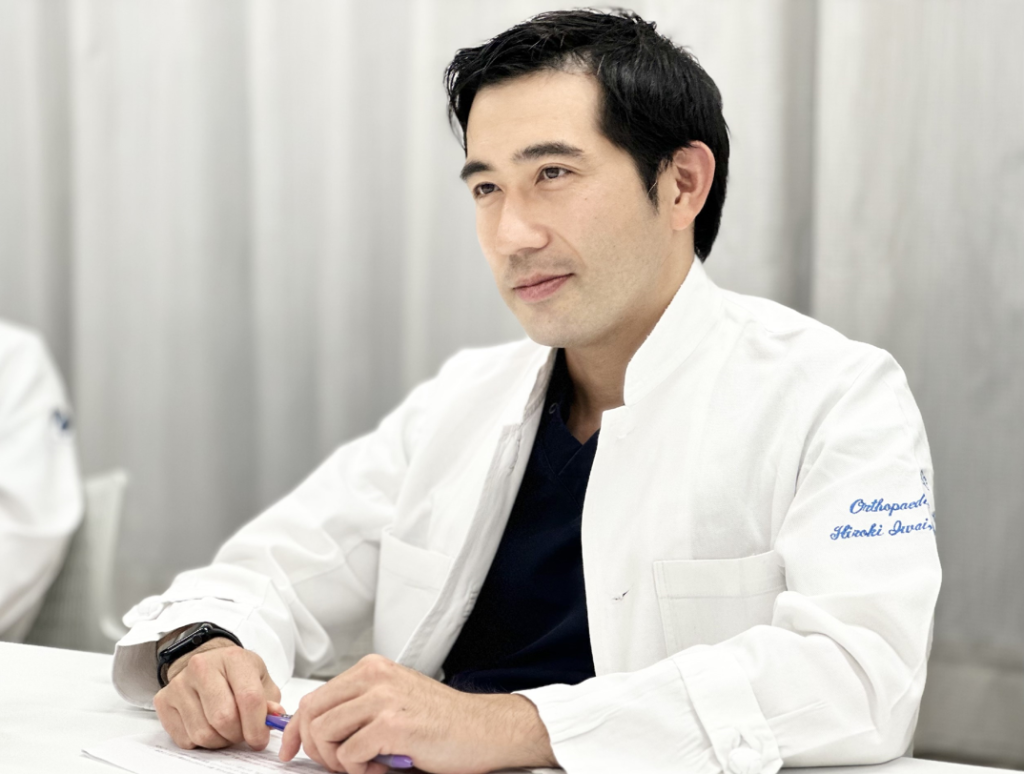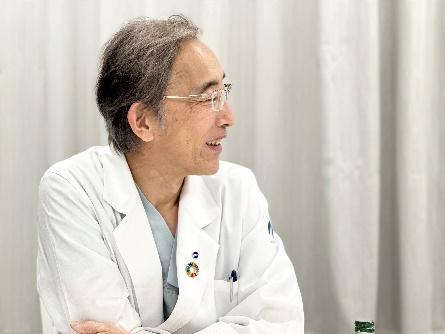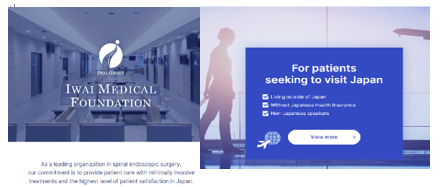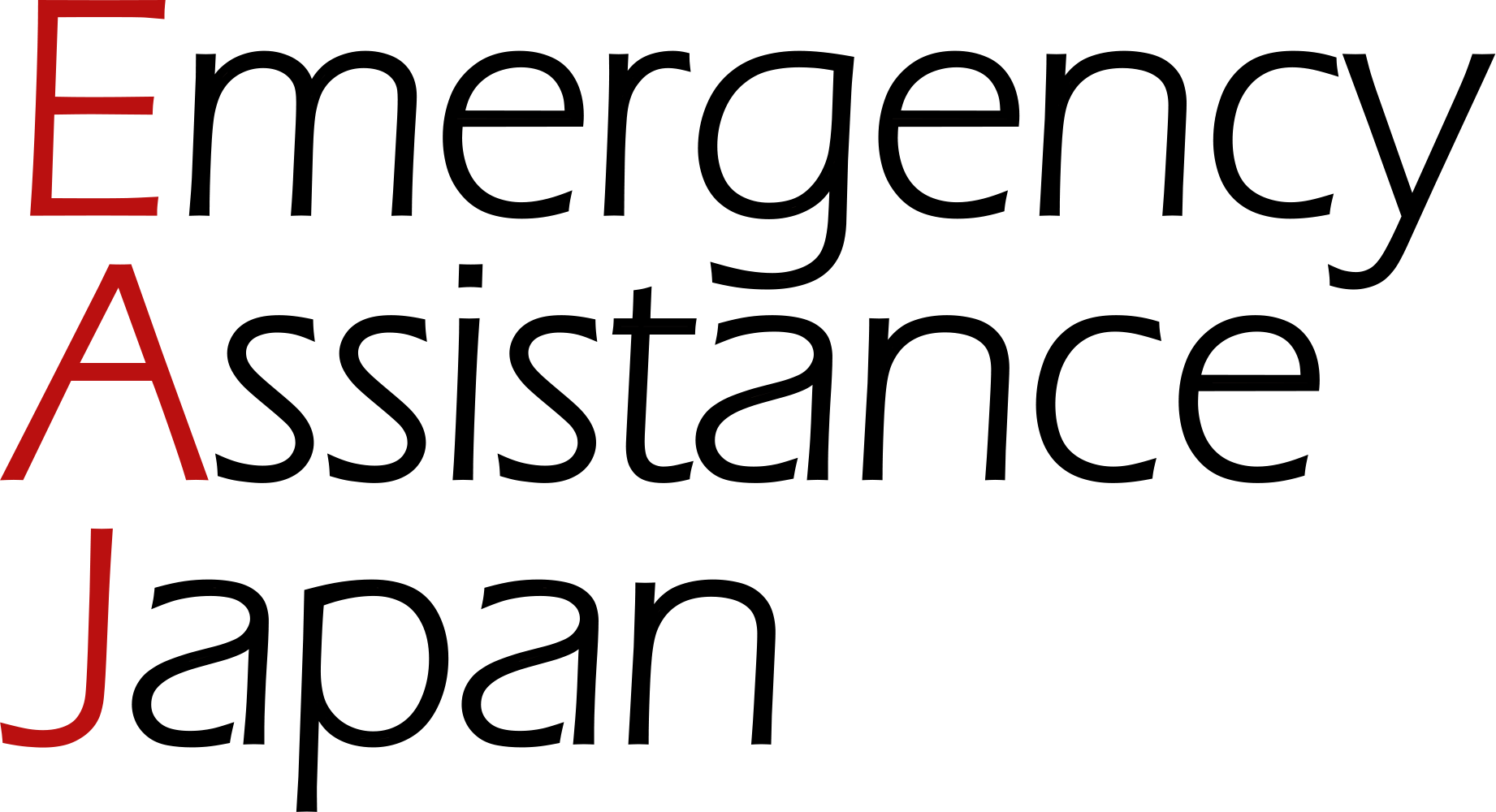Nose, throat, neck(Spine)
- HOME
- Other than cancer(Head and Neck)
- Nose, throat, neck(Spine)
- Hospital specializing in minimally invasive endoscopic treatment for the spine Iwai Group, opening the door to the world
Hospital specializing in minimally invasive endoscopic treatment for the spine Iwai Group, opening the door to the world
24.02.28
Iwai Group specializes in minimally invasive surgeries with less pain and faster recovery, mainly for spinal diseases such as lower back pain and spinal pain. The group has been treating patients from overseas for some time, but they have recently decided a policy to further expand the number of patients to provide medical care, and in September 2023 they have just launched a dedicated English website for patients from overseas.
Emergency Assistance Japan (EAJ) interviewed Dr. Hiroki Iwai, CEO of the group, and Dr. Hisashi Koga, a renowned endoscopic surgeon, about the strengths of the medical care provided by the Iwai Group and their message to patients from overseas.
Improved quality due to specialized hospital’s expertise and treatment track record
40% of patients have sought medical attentions through word of mouth
EAJ; The Iwai Group (Iwai Medical Foundation, a medical corporation foundation), with Iwai Orthopedic Hospital at its core, handles 10% of the cases in Japan for endoscopic spine surgery. How did the number of patients increase?
CEO; Our corporation was founded in 1926 and became an orthopedic hospital in 1990, and then in 2001, my father, Inanami, started performing endoscopic spinal surgery. After that, Dr. Koga and others joined our group, and we began to specialize in endoscopic spinal surgery. Throughout our history, our hospital has been widely publicized through so-called word of mouth, where patients refer us to other patients. Currently, 30% of patients at Iwai Orthopedic Hospital and 40% of patients at affiliated Inanami Spine and Joint Hospital visit our hospital through word of mouth from all over Japan.
EAJ; As a specialized hospital, it is highly rated by patients. Some patients from overseas may wish to receive treatment at an orthopedic department at a university hospital, but what are the strengths of specialized hospitals?
CEO; There are medical treatments such as rare diseases and advanced medical care that can only be provided at university hospitals. On the other hand, the “focused factory” type of medical care advocated by Professor Skinner of Harvard University is a solution in which specialized hospitals focus on specific treatments and surgeries and perform them frequently, thus increasing the expertise of those treatments and accumulating experience. This method has the advantage of improving efficiency and quality of treatment. Our hospital is such a specialized hospital that primarily performs endoscopic surgery, where technology is of the essence, and I believe that the accumulated number of cases we have performed brings about a virtuous cycle because of the effect that the more we improve our surgical expertise, the more the frequency of patient’s visit increases due to the improved image about our hospital.
Dr. Koga; Right now, several doctors from national universities are coming to receive training at our hospital. Our hospital, which is a specialized hospital, provides technical guidance, and we collaborate by referring rare cases, such as those with complications, to university hospitals.
Determine the cause of pain with high diagnostic ability
CEO; From the medical point of view, I would especially like to point out that our hospital’s strength is our “high diagnostic ability.” Pain is the most troubling problem for patients, and the goal of treatment is to relieve that pain. In a nutshell, “lower back pain” can occurs by multiple causes, including not only spinal nerve compression, but also inflammation of the nerves in the joints and the intervertebral discs themselves. Diagnosis begins with a test called block injection, in which an anesthetic is injected directly into specific nerves, joints, intervertebral discs, etc. to temporarily block pain transmission, and this test is performed to pinpoint and accurately identify which area is causing the pain. This test will be carefully performed by an experienced doctor on the day of your treatment. Minimally invasive treatment means pinpointing the area necessary for surgical procedure with minimal damage, but in order to treat only the cause of the problem without too much or too little, our hospital places great importance on accurate diagnosis. I believe that this kind of procedure can only be done at a specialized hospital.

Pursuing a reduction in the burden on patients with minimally invasive surgery
EAJ; Next, I would like to ask Dr. Koga, leading the treatment as a spinal endoscopic surgery specialist at the Iwai Group, about “minimally invasive treatment.” I saw several videos of the surgery on a site exclusively for foreigners, and was impressed the explanations were very detailed. In order to relieve pain, what makes the treatment you are currently performing “minimally invasive” in which the bone or ligament is removed from the area that is compressing the nerve?
Dr. Koga; To relieve the pain, we will perform something called “decompression surgery” as just mentioned, but there is also a classic surgical method in which the affected area is widened open with a scalpel. This allows for easier viewing since it is open, but it also increases the burden on the patient. As doctors sought to reduce the burden on patients, they first tried to use loupes to make things easier to see, then used microscopes, and then developed to “endoscopes,” where a camera was inserted into the affected area. The type of endoscopy that I perform is called “FESS” (abbreviation for “Full-Endoscopic Spine Surgery”), which is a microscopic technique with a diameter of 7 mm. This is a minimally invasive surgery performed using an endoscope. With non-minimally invasive surgery, a patient will be in bed for the entire day of the surgery, but with FESS, a patient will be able to walk within 3 hours after the surgery, and there will be no rehabilitation, and the patient will be able to continue walking at home. If the length of incision is more than 3 cm, a patient will feel quite a bit of pain even after the surgery, but at our hospital, the length of incision is less than 1 cm, so the pain can be suppressed. Also, when tissue is exposed to air during surgery, it oxidizes and forms scar tissue (the tissue in the surgical area turns into hard, immobile tissue during the repair process). With FESS, water is constantly refluxed during the surgery, so this is less likely to occur, which also has the advantage of making it easier to perform reoperations for hernias, etc.
International patients are also increasing due to word of mouth
EAJ; There are other hospitals in Japan that offer FESS, but what should international patients consider when choosing a hospital?
Dr. Koga; Even for the same surgery, the length of operation time and the incidence of complications and recurrence vary from hospital to hospital. This kind of information is usually not made public, so comparisons may not be possible, but our hospital proactively reports this kind of data in papers in overseas journals and academic conferences. For example, the recurrence rate for hernias is extremely low at 5%. Although this is rare among private hospitals, we also accept overseas doctors for training, and so far about nine doctors have studied at our hospital.
EAJ; What led to the increase in the number of patients coming from overseas for treatment?
Dr. Koga; It all started when a businessman in a Southeast Asian country who was involved in a wide range of businesses visited our hospital. At that time, I had been posting videos of my surgeries in English on the Internet, and the person contacted me after seeing the videos, and that’s how it all started. It was a very memorable experience because about 20 of his family and friends came together. When the patient came to the hospital, he was unable to walk more than a few meters due to pain in his lower back, which was interfering with his daily life. He was unable to travel far or even go out for some shopping, but after the surgery he was able to walk freely and was able to travel to Japan with his family and return home. Afterwards, when he came to the hospital taking the opportunity to visit Japan, he thanked me and said, I am so glad I’ve gotten well. After witnessing the results of the surgery, the 20 family members of the patient introduced our hospital to others who were also suffering from hip and back pain, and many people from those countries continued to come for treatment. There are also many patients from Asian region. The number of patients who did not get better is very few. Many patients returned to their home countries satisfied with our medical care.

Opened a website specializing in international patients and started admitting the patients proactively
EAJ; Patients from overseas have been coming to your hospital through word of mouth. What were your thoughts behind the decision to seriously promote the admission of international patients?
CEO; I was originally interested in medical inbound tourism (admitting international patients). When I decided to succeed my father as CEO, I decided to make inbound medical care one of the core businesses of our management. This is because I thought, “Even though we have such high expertise, it would be a waste of resources if we keep that expertise just domestically.” I have always studied medicine as an orthopedic surgeon. I wanted to build a network that would be useful for admitting patients from Asian region, so I studied abroad and earned an MBA. Then I became the chairman in 2020. This year, after the coronavirus pandemic is settled, we have begun efforts such as creating a website exclusively for international patients and setting up a system to admit them, in an effort to bring medical inbound tourism into full swing.

EAJ; Even in the video on the dedicated website, you greeted a potential patient in English, which I was impressed really conveys your sense of hospitality.
CEO; Both Dr. Koga and I can provide medical consultation in English.
Dr. Koga; I worked at a hospital in China for about three years, and I can actually speak Chinese a little.
In order for patients from overseas to visit our hospital with peace of mind
Dr. Koga; At our hospital, we have been providing remote medical treatment to international patients for quite some time. Before a patient comes to Japan, we not only check images such as X-rays, but also check as to how the patient can actually move their body on a remote screen, confirming the patient’s current status. Patients also say that they can come to Japan with peace of mind by speaking with their doctor in advance.
EAJ; How about accommodation, meals, and other non-medical aspects?
CEO; There is a special room on the 5th floor of Inaanmi Spine and Joint Hospital. When room is available, the family members of patient may be able to stay overnight. We have been serving Halal meals for some time, but we are also making arrangement for catering in order to do our best to meet requests of a patient. To receive treatment in Japan, a patient will also need language support and a medical stay visa. We support these matters in collaboration with the medical coordinator, so if a patient wishes to seek medical attention to our hospital, please first contact the medical coordinator such as EAJ.
